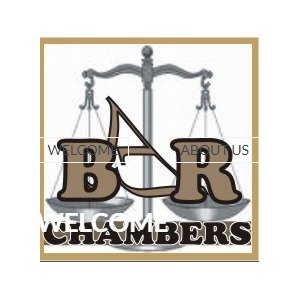Best Commercial Real Estate Lawyers in Ikorodu
Share your needs with us, get contacted by law firms.
Free. Takes 2 min.
Free Guide to Hiring a Real Estate Lawyer
List of the best lawyers in Ikorodu, Nigeria
Nigeria Commercial Real Estate Legal Questions answered by Lawyers
Browse our 1 legal question about Commercial Real Estate in Nigeria and read the lawyer answers, or ask your own questions for free.
- Legal Documents Required in Real Estate Transactions to Verify Property Legitimacy
- As a buyer or agent, what are the necessary documents to request from the seller or the agent in charge of a property to ensure it's legitimate?
-
Lawyer answer by CO-dunni Law Solicitors
You would need the Deed of Assignment, approved survey document, evidence of payment of ground rent (for properties with C of O). You should give these documents to a Lawyer for verification. You cannot do it yourself. Contact us
Read full answer
About Commercial Real Estate Law in Ikorodu, Nigeria:
Commercial Real Estate Law in Ikorodu, Nigeria, is the field of law governing the purchase, sale, and leasing of business properties. This could encompass anything from shopping centers and office buildings to hotels and industrial sites. These legal transactions also cover zoning issues, property taxes, and legal disputes between landlords and tenants, amongst others. The complex nature of commercial real estate transactions makes it crucial to understand the intricacies of local laws and the Nigerian Land Use Act.
Why You May Need a Lawyer:
Engaging a lawyer while dealing with commercial real estate in Ikorodu, Nigeria can be beneficial in numerous situations. For instance, if you're buying or selling a commercial property, legal advice can protect your interests and ensure smooth transactions. Lawyers can also help address complicated situations such as property disputes, tenant issues, or problems with zoning laws. Additionally, those who plan to develop or refurbish commercial properties may require a lawyer to assist with environmental regulations and construction law aspects.
Local Laws Overview:
The principal law governing land administration in Nigeria, including Ikorodu, is the Land Use Act of 1978. This federal law vests land control in the State Governor, and leaseholds tend to be the typical form of land ownership in Nigeria. Commercial properties may be subject to additional local planning, zoning, and environmental laws. For example, licenses or permits are usually needed for certain types of businesses or property usage. Non-compliance with these laws can lead to penalties, including fines and revocation of permits.
Frequently Asked Questions:
Does Nigeria practice freehold or leasehold ownership?
Nigeria typically practices leasehold ownership due to the Land Use Act; freehold ownership is rare.
What are the major taxes related to commercial properties in Ikorodu, Nigeria?
Commercial property owners are responsible for land use charge, tenement rate, and other state and local government taxes.
Can foreigners buy commercial real estate in Ikorodu, Nigeria?
Yes, but foreigners cannot hold land in freehold, only on leasehold for up to 99 years.
Is it necessary to register a commercial property after purchase?
Yes, land and property registration is mandatory under Nigerian law and provides legal proof of ownership.
What happens if a landlord and tenant have a dispute related to a commercial property?
The dispute is usually handled by Nigeria's judicial system, but alternative dispute resolution methods like arbitration and mediation are also common.
Additional Resources:
For more information, the Nigerian Institution of Estate Surveyors and Valuers (NIESV) and the Lagos State Real Estate Regulatory Authority (LASRERA) can provide valuable resources. Additionally, the Lagos State Land Use Charge website provides local tax-related information while the Nigerian Land Use Act can be accessed online for full legal insights.
Next Steps:
If you require legal assistance in Commercial Real Estate in Ikorodu, it is advisable to consult a reputable property law firm or attorney experienced in Nigerian commercial real estate law. They can guide you through transactions, legal disputes, or other legal matters. Always research potential choices carefully and consider working with professionals who have extensive experience dealing with similar issues.
Lawzana helps you find the best lawyers and law firms in Ikorodu through a curated and pre-screened list of qualified legal professionals. Our platform offers rankings and detailed profiles of attorneys and law firms, allowing you to compare based on practice areas, including Commercial Real Estate, experience, and client feedback.
Each profile includes a description of the firm's areas of practice, client reviews, team members and partners, year of establishment, spoken languages, office locations, contact information, social media presence, and any published articles or resources. Most firms on our platform speak English and are experienced in both local and international legal matters.
Get a quote from top-rated law firms in Ikorodu, Nigeria — quickly, securely, and without unnecessary hassle.
Disclaimer:
The information provided on this page is for general informational purposes only and does not constitute legal advice. While we strive to ensure the accuracy and relevance of the content, legal information may change over time, and interpretations of the law can vary. You should always consult with a qualified legal professional for advice specific to your situation.
We disclaim all liability for actions taken or not taken based on the content of this page. If you believe any information is incorrect or outdated, please contact us, and we will review and update it where appropriate.








